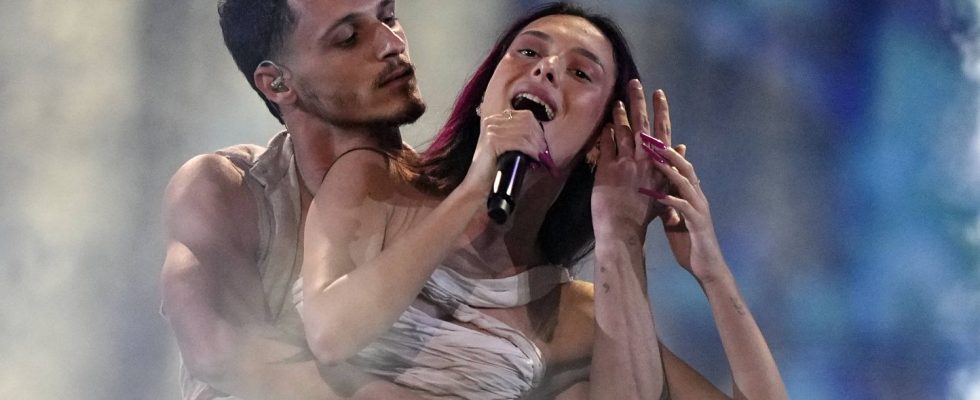From our special correspondent in Malmö (Sweden)
“The question on Thursday was whether Israel would qualify. From now on, we wonder if this country will win”, summarizes 20 minutes historian Dean Vuletic, author of Postwar Europe and The Eurovision Song Contest. In the wake of the announcement of her qualification for the final, at the end of the second semi-final of Eurovision, the chances of victory of the singer Eden Golan, who represents the Hebrew State, jumped among the bookmakers. In less than 24 hours, they went from 2% to 21%.
The reason ? Rai 2, the Italian channel which broadcast the show on Thursday, revealed the details of the televoting results, in a scrolling banner, at the end of the broadcast. Nearly 40% of the votes of the transalpine public would have gone towards the Israeli. We use the conditional because the broadcaster announced in a press release on Friday that the disclosure of these scores, which were to be kept confidential until Sunday, was linked to “a technical incident” and that they were “incomplete results” .
Ukrainian dynamics
However, it was enough for betting specialists to project a dynamic similar to that which Ukraine had benefited from two years ago. The Kalush Orchestra group established itself thanks to the massive mobilization of European viewers.
The juries no longer vote during the semi-finals since the 2023 edition, only the public had their say. To the people who gave their vote to Eden Golan for criteria linked to the simple appreciation of his performance and his song, are surely added those of a large part of the Jewish community and its supporters in reaction to the calls for a boycott and excluding Israel which have been widely publicized in recent months.
In Malmö, on Thursday, a demonstration which brought together 12,000 people denounced the decision of the EBU (European Broadcasting Union, which organizes the competition) to maintain Israel’s participation in the musical competition. Many of them believe that the country is using the Eurovision stage as a tool for soft power allowing it to improve its image internationally. Many criticize the EBU for double standards by being more lenient towards Israel than towards Russia, banned from the competition in 2022.
“It’s not the Council of Europe”
“People overestimate the political power of the EBU,” says Dean Vuletic. It is an association of public broadcasters, it is not the Council of Europe or the UN. The context is not comparable to that which followed Russia’s invasion of Ukraine: no participating country has cut its ties with Israel.
Artists competing in this edition took a stand by signing a joint statement demanding a ceasefire in Gaza and the release of the October 7 hostages. Several expressed their support for the Palestinian people more explicitly, like Bambie Thug, who represents Ireland.
Thursday afternoon, the Italian Angelina Mango visited the press room. She read a brief message to the journalists, which concluded with “Today, I hope that only music speaks” and then sang ConceivedJohn Lennon’s pacifist anthem.
Parallel competition
A little earlier, Jean-Noël Barrot, the French minister responsible for Europe, declared for his part that “politics has no place at Eurovision”. He considers “unacceptable” the “pressure on artists” called for a boycott of Israel.
“These pressures are contrary to the spirit of the competition, whose motto is “United by music” and which aims to bring together the people of Europe, and beyond, around artistic creation and singing. This is what must remain at the heart of the competition,” he insists.
This Saturday afternoon, a new demonstration in support of Palestine and against Israel’s participation in Eurovision is planned in Malmö. At the time of the final, the city will see the Falastinevision competition take place, organized by Swedish activists: fifteen artists from eight countries will participate.

